Dale Carnegie, renowned author of How to Win Friends and Influence People, said that an hour of planning can save you ten hours of doing. When you go into labor, things happen quickly. Having a birth plan in place keeps that urgency from turning into anxiety and frustration.
What the heck is a birth plan anyway?
A birth plan is a written record of what you want to happen during your labor and delivery. It gives your family and healthcare providers a clear picture of your birth preferences, including favored pain relief methods, childbirth practices, and postpartum care. Some people create very detailed plans while other mothers prefer to keep it simple. Whichever camp you fall into, try to stay flexible. Your birth plan represents an ideal scenario, but lots of things can happen between your first contraction and your first snuggle with your newborn.
You may want to give natural childbirth a try until you get the full experience of contractions. You wouldn’t be the first mother to have that particular change of heart. In some cases, a doctor may identify medical concerns that require a birth plan change. While you’re identifying your preferences, talk to your doctor to get a head’s up about possible disruptions to your plans. For example, your preferred hospital may not provide your preferred childbirth practice. Knowing possible hiccups ahead of time will help you adapt more easily when it matters.
Your birth plan will be as unique as you are, but below, you’ll find a list of essential questions to consider as you create your birth plan.
- Who would your like to have with you for support during labor and delivery?
- How can your labor partner best support you?
- Where would you like to have your baby: in a hospital? at home? an out-of-hospital birth center?
- Are there cultural considerations that your healthcare provider or hospital should be aware of?
- What type of birth are you planning: natural?
- How frequently do you want to be monitored?
- How do you hope to handle pain: no pain medication? epidural? IV pain medication?
- What are your preferences regarding skin-to-skin contact after delivery?
- How would you like to feed your baby? Be sure to specify if you plan to breastfeed as initiating that first nursing session immediately after birth will drastically improve your breastfeeding success.
- What would you like to happen (or not happen) after delivery, e.g., avoid pacifiers and supplements, circumcision or no circumcision, etc.?
Once you’ve completed your birth plan, share it with your doctor or midwife as well as the hospital or birthing center where your delivery will occur.
Bring a breast pump for backup.
If you hope to breastfeed your baby, but things don’t go according to your birth plan, have a breast pump on standby. In some cases, it’s impossible for a mother and baby to have that first important breastfeeding session immediately after delivery. Having a pump on hand will allow you to express milk even if your nursing session is delayed.
-
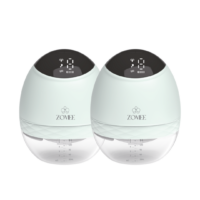 Zomee Fit Wearable Hands Free Breast Pump
Zomee Fit Wearable Hands Free Breast Pump -
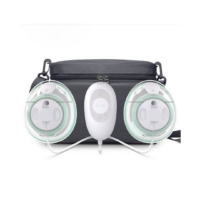 Elvie Stride Plus Electric Breast Pump and Bag
Elvie Stride Plus Electric Breast Pump and Bag -
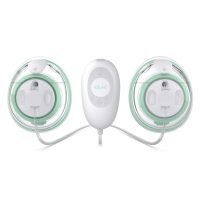 Elvie Stride Double Electric Breast Pump
Elvie Stride Double Electric Breast Pump -
 Elvie Double Electric Breast Pump
Elvie Double Electric Breast Pump -
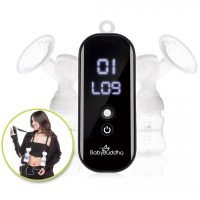 BabyBuddha® Complete Kit
BabyBuddha® Complete Kit -
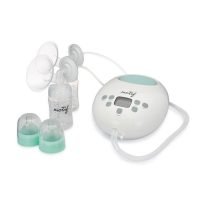 Motif Luna Battery Powered Breast Pump
Motif Luna Battery Powered Breast Pump -
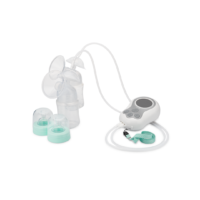 Motif Duo Double Electric Breast Pump
Motif Duo Double Electric Breast Pump -
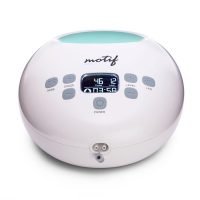 Motif Luna Double Electric Breast Pump
Motif Luna Double Electric Breast Pump -
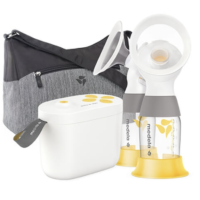 Medela Pump In Style® with MaxFlow™ Breast Pump and Bag
Medela Pump In Style® with MaxFlow™ Breast Pump and Bag
